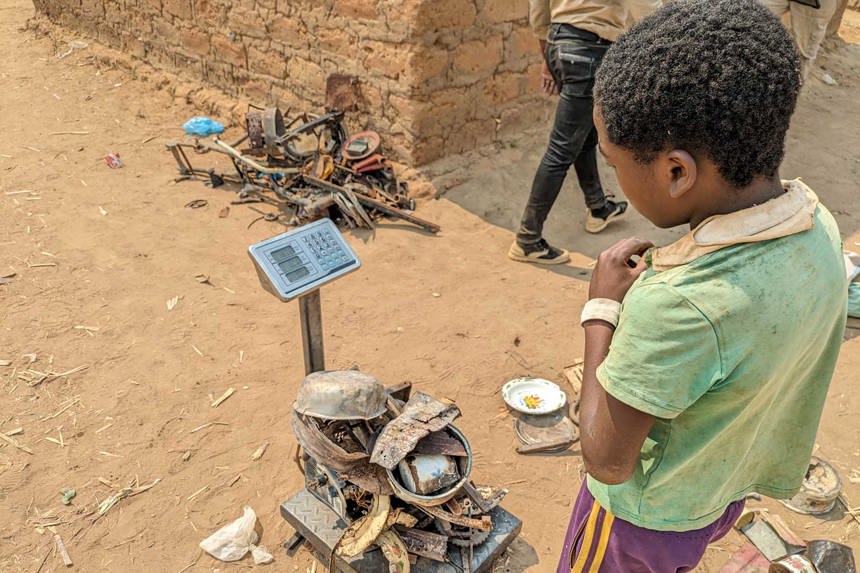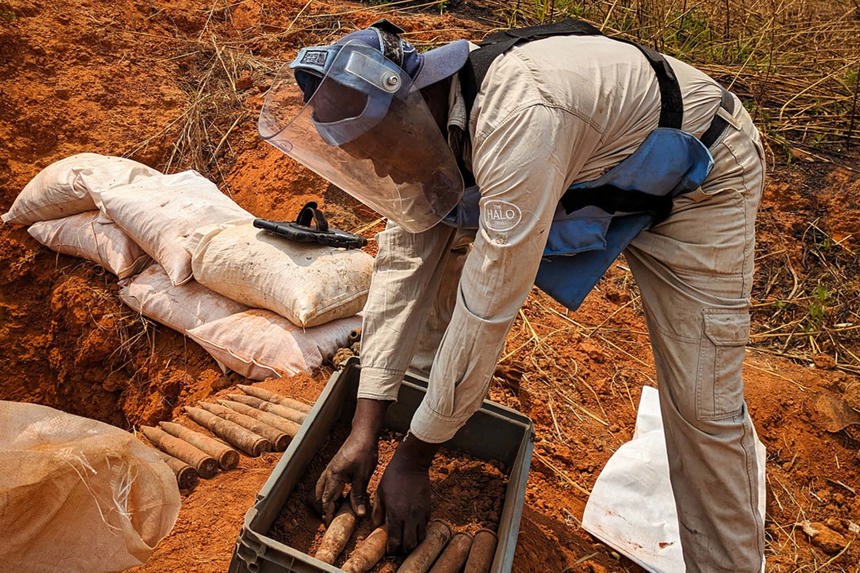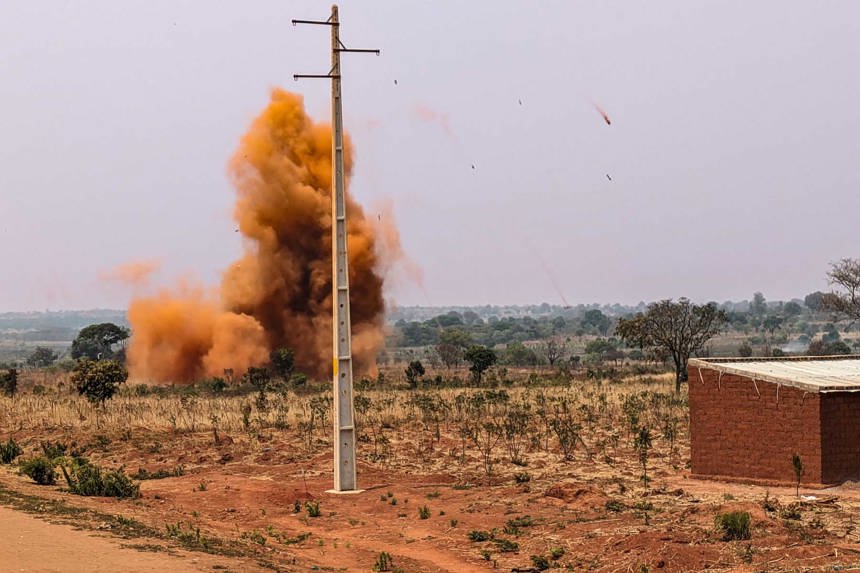Three young boys from São Lucas village, Angola, are weighing metal items they have found discarded around the area. The boys are no more than 10 years old and have gathered an array of objects—from enamel mugs to abandoned car parts, metal wires and rusty pots and pans.

They’ll get 25 Angolan Kwanzas per kilo of scrap metal they have found. Transferring the items onto a digital scale, the boys stand patiently, watching as the numbers increase. Their 18kg heap will fetch them roughly 50 US cents. While this could only provide spare change to spend at the local convenience store in the US or UK, here in rural Angola, this is part of their families’ livelihoods. But this source of income is dangerous. Often what may look like scrap metal to a child, can be potentially lethal explosive items.
São Lucas sits between the main road linking it to the larger city and municipality of Catabola, and the railroad that cuts across Bié province. It is roughly 300km north-east of Benguela. Thirty years ago, this village did not exist. “It was bush, and some agricultural areas,” says Paula Samba, the soba (traditional leader) for São Lucas. During the Angolan Civil War, the area where the village now stands, was a battleground which saw conflict between government forces (FAPLA) and the opposition forces (UNITA), leaving behind a dangerous array of mines and explosives. São Lucas “is only about 10 or 15 kilometers from the Uyue river, one of the major frontlines of the war,” says Paula.
The village now has 2,707 residents, including children. Their main source of income is agriculture, so ploughing the fields is necessary. “In the Catabola municipality, 90 per cent of residents do agricultural work’” says Hernane Mateus, Secretary to the local administrator of Catabola. Some of the produce remains in Catabola, the rest is exported across Angola and internationally to neighbouring Namibia and Zambia. São Lucas grows some maize, but mostly beans, says Paula. “Buyers from Luanda come to purchase beans, and what they don’t buy, we try to sell locally at the Catabola market.”
Protecting families from the threat of explosives left behind by the fighting is HALO’s priority. Our team surveys and identifies explosives in areas like São Lucas, moving them to designated sites where they can be safely destroyed. HALO also runs Explosive Ordnance Risk Education (EORE) campaigns to make communities aware of the dangers that moving potentially explosive items can cause. After HALO’s Community Liaison Team—funded by The Office of Weapons Removal and Abatement in the U.S. State Department's Bureau of Political-Military Affairs (PM/WRA)—led EORE sessions in the São Lucas area, a cache of grenades and canon rounds was identified by the community and reported to the police.

Tiago is one of HALO’s Weapons and Ammunition Disposal (WAD) team leaders working in Bié province. His team organised the transfer of this deadly stockpile of explosives from the police station to a central demolition site located a 15-minute drive away where it could be safely destroyed. The WAD team blocked off the area to ensure the safety of the community. Once the signal was given, the demolition countdown began and a plume of smoke could be seen rising into the air above the explosion.
As soba of São Lucas, Paula is grateful to have risk education being conducted in her village. Much of the unexploded ordnance found is old and extremely unstable. She believes that stockpile destruction is vital to the development of São Lucas and will save the lives of many of its children.

This life-saving work is made possible thanks to funding from the
Government of the United States.



